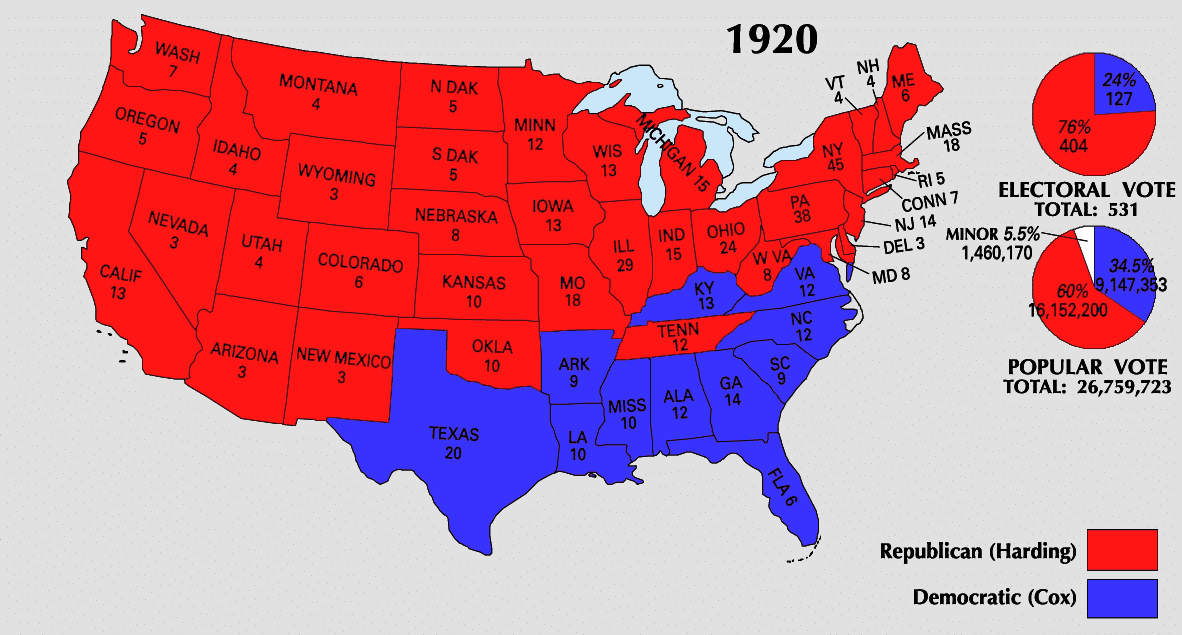The Presidential Election of 1920 would place two men from Ohio as presidential nominees.

Both parties had seen many changes in the past four years. World War I was over, and the popularity of President Wilson was waning. He had successfully navigated the United States through a tough time, but his health was failing, and although he privately wanted to run for a third term, the Democrats would not support him.
Theodore Roosevelt was the clear front-runner to the Republican ticket, but his death in 1919 did not leave a clear heir to pick up his progressive legacy.
Both parties had to find different leaders for their parties, and both knew that Ohio was a critical swing state.
The candidates were as follows:
- Republicans: Warren G. Harding and Vice President Calvin Coolidge
- Democrats: James M. Cox and Vice President Franklin D. Roosevelt
Platforms
Republicans: Warren Harding campaigned on the slogan, "Return to Normalcy." This was a direct attack on the progressive era that America had been in and the international responsibilities that had been laid on the Americans after World War I with the Treaty of Versailles.
Democrats: Wilson had gained support in the Election of 1916 by promising to ask for Irish independence. His actions during and after the war hurt the Democratic Party, as the Irish were the main constituent. His League of Nations was unpopular among much of the base, and the Democrats spent more time trying to defend and explain away his positions than introducing new ones.
Women's Suffrage had finally been passed, which would mark the first time that Women in America could vote.
Outcome
The Republicans doubled their turnout, and Warren Harding easily won the election. It would also mark the first time since the end of Reconstruction that a former Confederate State voted for a Republican Candidate when Tennessee fell to Harding.
On election night, November 2, 1920, commercial radio broadcast coverage of election returns for the first time. Announcers at KDKA-AM in Pittsburgh read telegraph ticker results over the air as they came in.
This single station could be heard over most of the Eastern United States by the small percentage of the population that had radio receivers.
Harding's landslide victory was due to the Irish-Americans and German-Americans crossing over to the Republican Party.
